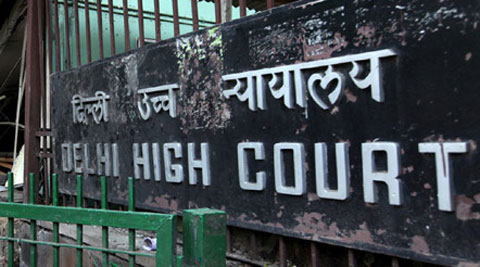- India
- International
HC questions two sets of rules for age of juvenile offender
Also directs Tihar jail officials to not admit any young offender if his warrant file does not have age memo in it.
 Delhi High Court (Source: PTI)
Delhi High Court (Source: PTI)
The Delhi High Court bench of Chief Justice G Rohini and Justice R S Endlaw on Wednesday asked the Member Secretary of the Delhi State Legal Services Authority (DLSA) to explain why the Juvenile Justice Rules on verification of age in Delhi were different from the Central government rules.
A PIL filed last year by advocate R K Tarun had raised the issue that Rule 12 of the Delhi Rules was”contrary” to the Central rules with regard to the documents that are to be taken on record to determine the age of an offender.
“Why is there no uniform rule?” the bench said. Dharmesh Sharma, DLSA member secretary, informed the court that the “anomaly” had been pointed out earlier by the DLSA, but the Delhi government “did not have the authority to make or amend the rules”.
The court has now asked the DLSA to give a written opinion on the issue, and has also asked the Central government to file a reply in the issue.
The Central Juvenile Justice (Care and Protection of Children ) Rules specify that the age determination inquiry will look at the Class 10 or equivalent certificate of the offender as first proof. If the matriculation certificate is not available, it will look at the date of birth certificate from the school first attended. The birth certificate issued by the municipal authority or village panchayat is third on the list of age proof documents, according to the Centre’s rules. The Delhi rules, on the other hand, mentions matriculation certificate as the last document on the list and give primacy to the school certificate and then the birth certificate issued by municipal authorities.
Meanwhile, in a separate PIL related to the problem of juvenile offenders being sent to jails, the Bench directed the Tihar jail authorities to not admit any young offender if his warrant file sent by police does not have an age memo attached to it.

The age memo is a document verifying the age of an offender and the basis on which the verification has been done.
The Delhi Police Commissioner has also been directed to ensure that police officers attach “age memo” with the warrant files of young offenders.
The court had in 2011 taken suo motu cognizance of the problem of juvenile offenders being sent to jail in violation of the Juvenile Justice Act. National Commission for Protection of Child Rights (NCPCR) counsel Aagney Sail on Wednesday informed the court that despite court orders, the Delhi Police was not preparing age memos of offenders before sending them to jail.
The High Court had in 2012 directed that investigating officers to compulsorily prepare age memos for accused persons who were stated to be between 18 and 21 years of age and a copy of memo be delivered to the arrested offender. According to Sail, none of the undertrials interviewed by NCPCR over the past two years were found to have gotten a copy of the age memo.
Best of Express
Apr 18: Latest News
- 01
- 02
- 03
- 04
- 05






































